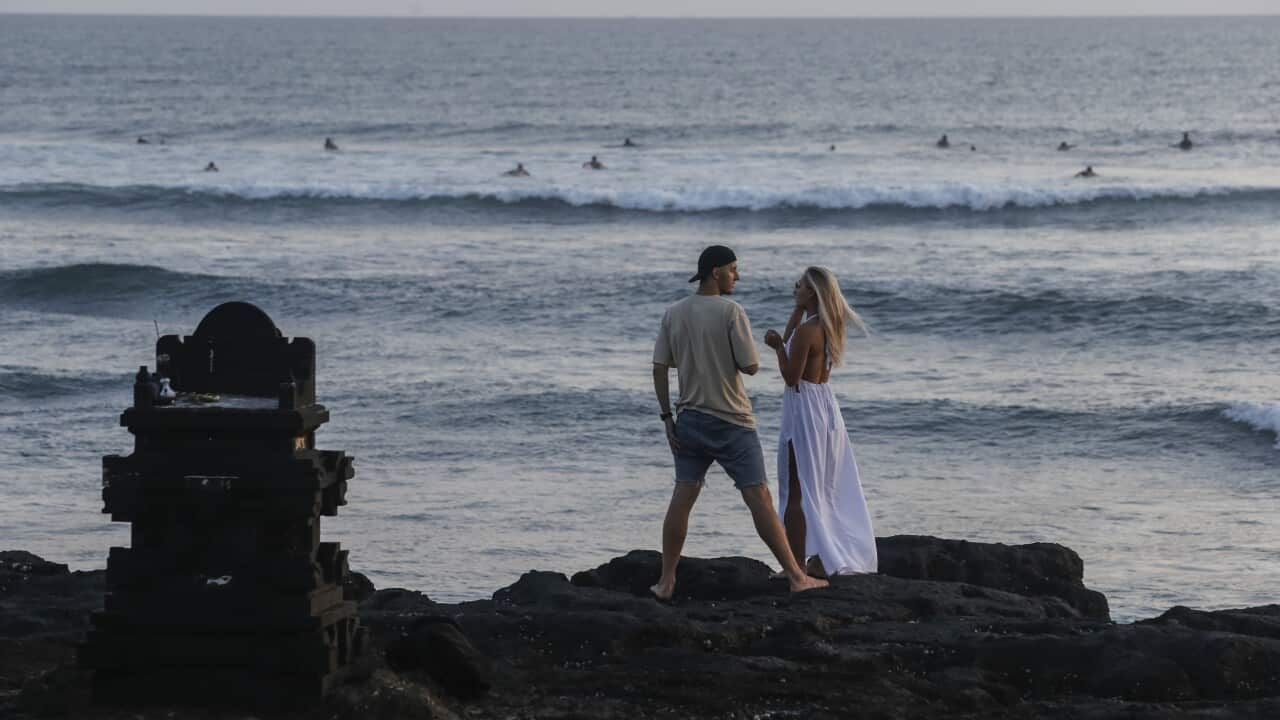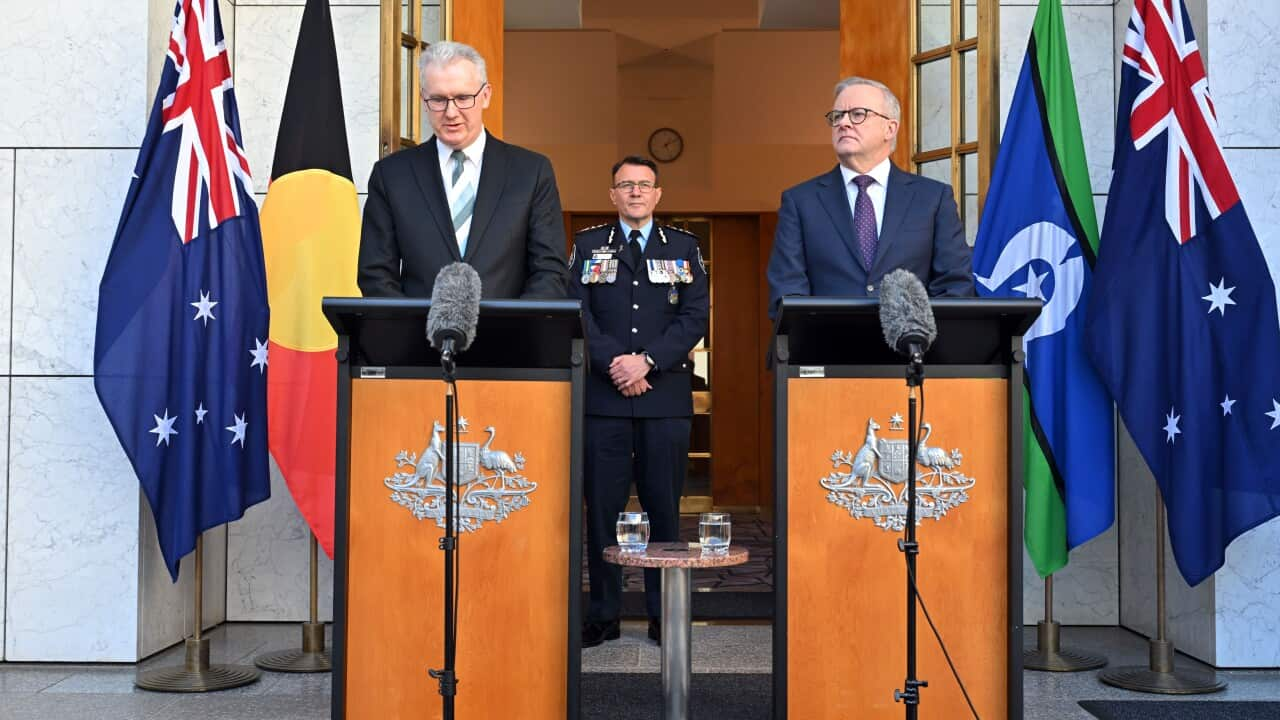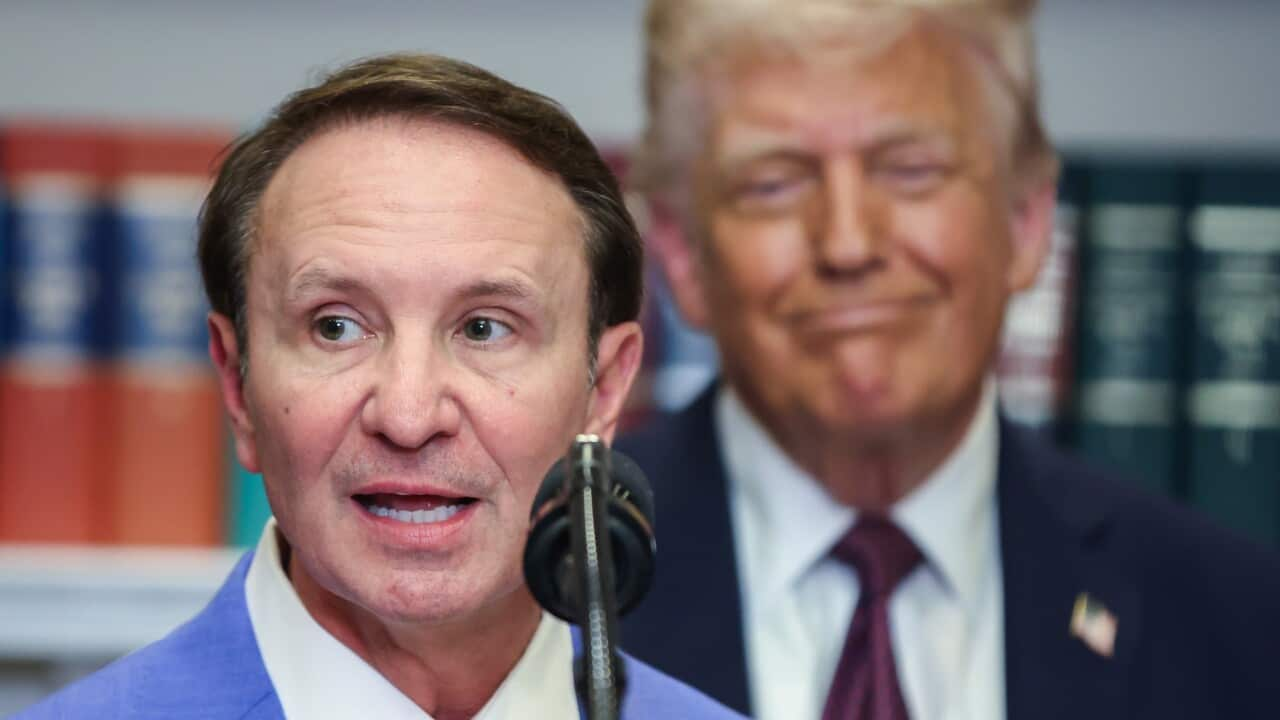TRANSCRIPT
In his first leader's speech to the United Nations General Assembly, Prime Minister Anthony Albanese has promoted Australia as a significant middle power.
He says Australia's record on peacekeeping and international diplomacy make it a perfect candidate for a seat on the U-N Security Council, while also pushing to co-host the COP31 climate summit in 2026.
"The United Nations is much more than an arena for the great powers to veto each other’s ambitions. This is a platform for middle powers and small nations to voice – and achieve - our aspirations. That is why Australia is seeking a place on the UN Security Council in 2029-30. And it is why we are bidding to co-host the 31st Conference of the Parties, with our Pacific family nations for whom climate change is more than an environmental challenge, it is an existential threat."
The security council has five permanent members: China, France, Russia, the United Kingdom, and the United States, and ten temporary members who are elected on a two-year basis.
Outside of these bids for Australia to hold significant global diplomatic relevance, the Prime Minister's speech sought to encourage the world's nations to co-operate on climate change and peacekeeping, warning the U-S can't always be relied on to uphold these efforts alone.
It comes at a time when the U-S under President Donald Trump is increasingly vacating its space as global leader, and the rules-based order is threatened by the rise of authoritarianism and regional conflict.
Mr Albanese says he sees the U-N as an essential diplomatic instrument at a time when war and global instability threatens to further engulf the world.
"If the United Nations steps back, we all lose ground. If we give people reason to doubt the value of co-operation, then the risk of conflict becoming the default option grows. If we allow any nation to imagine itself outside the rules, or above them, then the sovereignty of every nation is eroded."
The day prior to Mr Albanese's speech, President Trump delivered a fiery speech to the U-N, criticising nations like Australia that have now recognised Palestinian statehood. and telling European leaders that their countries are going to hell.
On Gaza, the Prime Minister reiterated calls for a ceasefire between Israel and Hamas, and emphasised the importance of seizing the chance of a two-state solution to the longstanding Israeli-Palestinian conflict before it is too late.
"For decades, leaders have come to this podium in search of new words and new ways to call the world to action on a two state solution. This week - Australia recognised the state of Palestine. There is a moment of opportunity here – let us seize it."
Anthony Albanese's speech to the general assembly also sought to position Australia as a world leader on the green energy transition.
"As a continent home to some of the greatest natural treasures on the planet and as a nation blessed with the traditional resources, critical minerals, skills and sunlight and space to power the global shift to net zero, Australia is acting to meet the environmental challenge of climate change while working to seize and share the economic opportunities of renewable energy."
He says U-N members must understand that economic growth and meaningful action on the climate crisis are not mutually exclusive goals.
"Clean energy can carry the world beyond the false choice between economic growth and environmental responsibility.
Because clean energy enables the rapidly growing economies of the Indo-Pacific to industrialise and decarbonise at the same time.
And to continue lifting their people’s living standards while lowering their nation’s emissions."
Mr Albanese pledging that Australia will stand with all member states in ensuring that the United Nations delivers real results for those suffering around the world.
"More than ever, we must choose to succeed together rather than risk failing alone. More than ever, we must work to see the promises of this place deliver real progress for the people we serve. More than ever, we must work to build a future true to the United Nations’ noble purpose and worthy of our people’s greatest qualities. We all have a part to play - and Australia, just as we always have - will always play our part."













